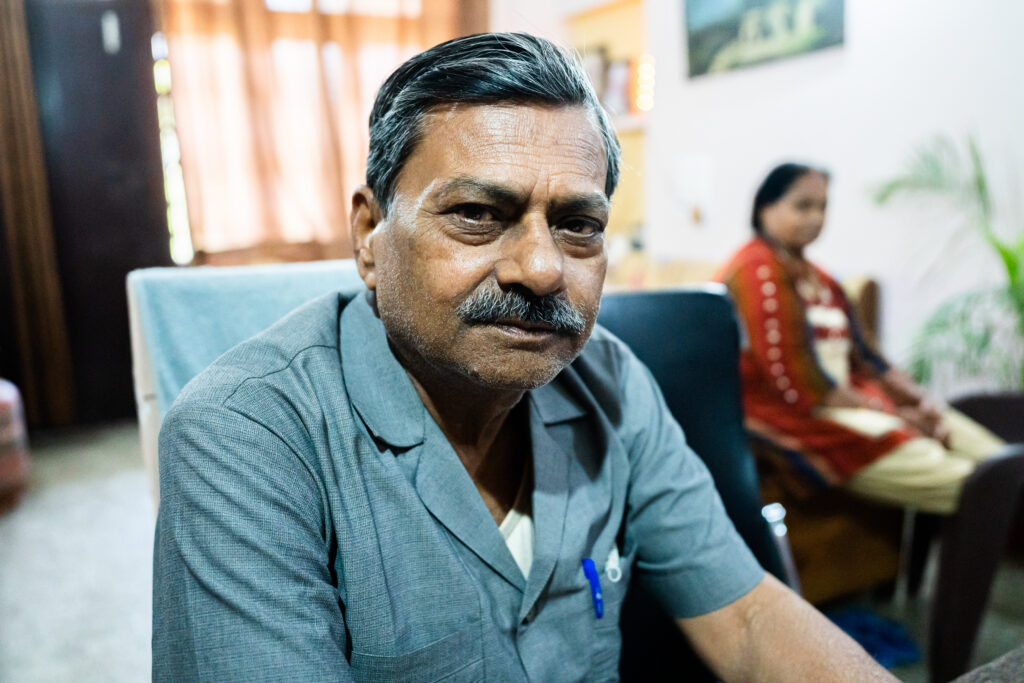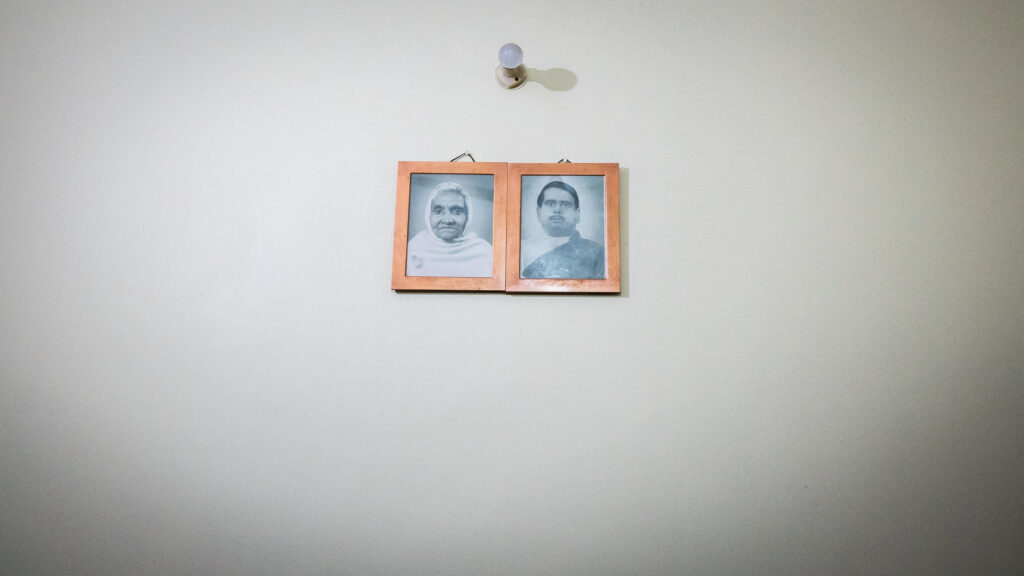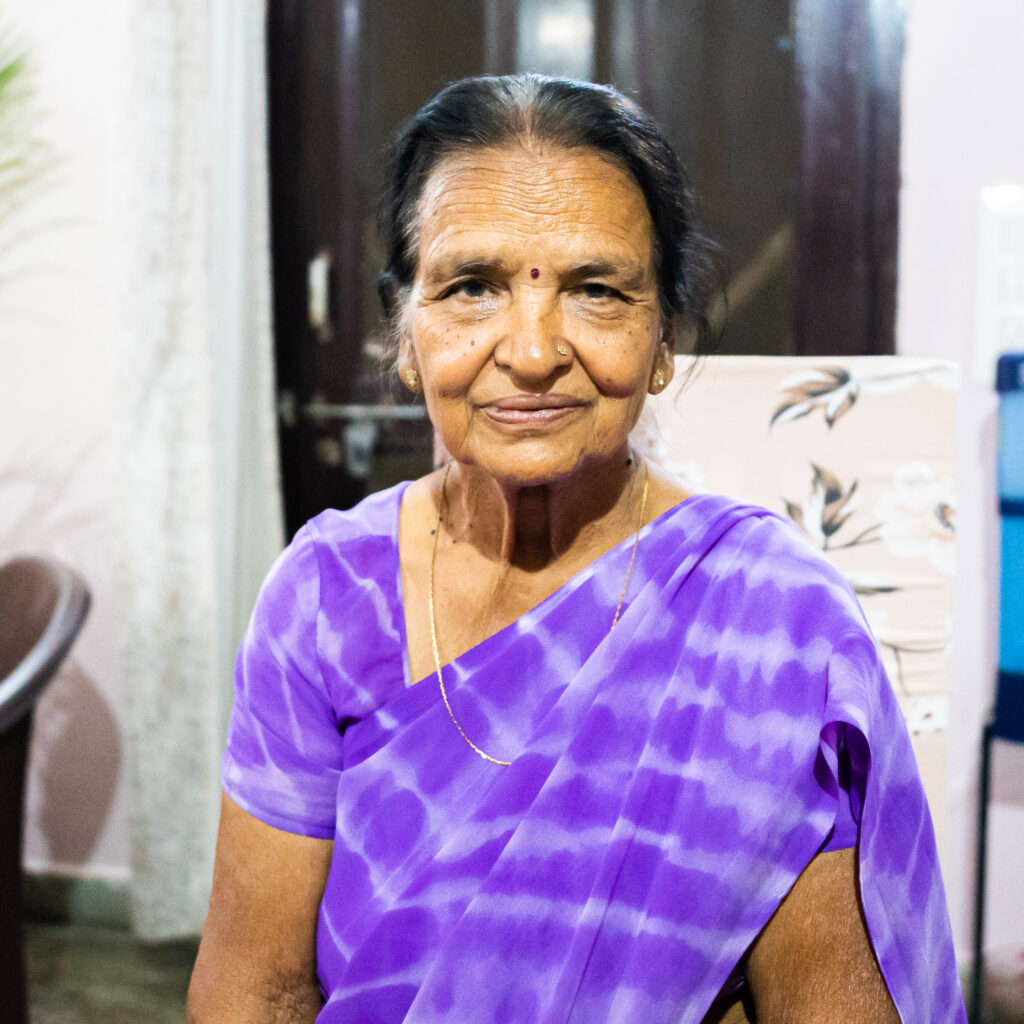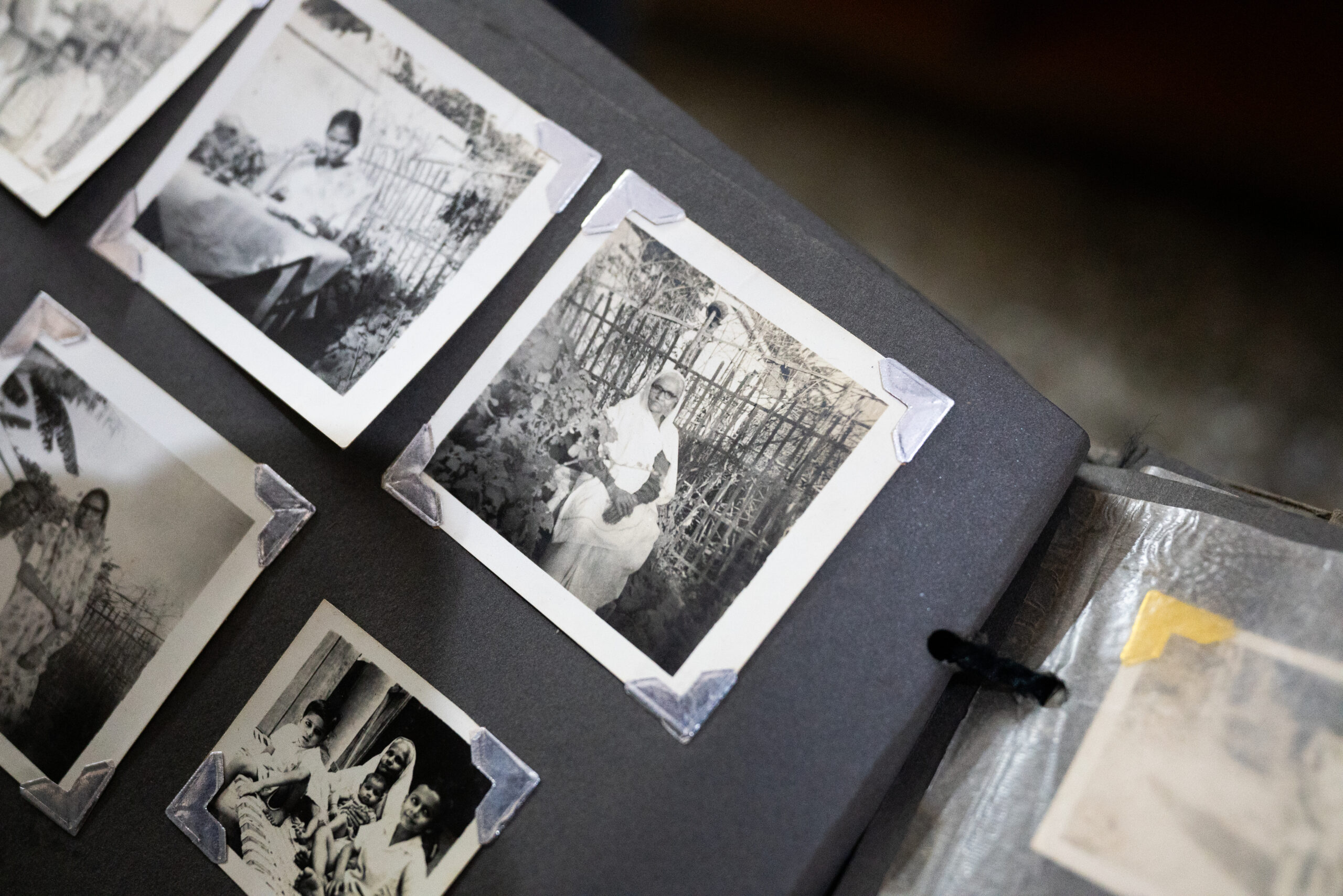He had a horse and a pistol.
He also had a house that was so big that when British soldiers raided it, apparently they got lost and couldn’t find a way out. At least that’s what my father’s eldest cousin, whom I call Tauji, says.
My great-grandfather had enough love for his people and his country that he didn’t fear the British. Family lore says that when the British used to do blackouts in our village he would stand in front of the soldiers and demand that they cut off their own power, too.
I was in India in November of 2019, visiting my grandfather in the nursing home where he lay sick. My siblings, father, and I stood around his bed talking with him. He asked me if I was afraid of the police. I didn’t know how to answer. I didn’t know how to tell him that in college, police officers held me at gunpoint and put me in handcuffs in the back of their vehicle as they searched my car. I lied and said no. He said he was. “They beat us like dogs,” he said.
As we left the nursing home, I made a promise that the next time I came to India, I would bring a recorder and document his stories. I wanted to learn more about him and the family I grew up thousands of miles away from. Then he passed away just two months later, right before the pandemic started. His memory came to me frequently in the early days of the lockdown, as I sat in my bedroom in Cicero and watched graduation caravans, ambulances, funeral processions, protests and riot police pass by my window.

What I know of my family history, particularly about my great-grandfather, is fragmented. He died when his six children, my grandmother one of them, were very young. On my most recent trip to India this past March, I set out to try to document as much as I could about him. But it was hard.
My grandmother died when I was in college. Her brother, and her last remaining sibling who lived down the street from her home, died from COVID in 2021. No family members who directly remember my great-grandfather are still living. Tauji remembers the stories his father told him. And my father’s aunt—or my grandmother’s sister-in-law, whom I refer to as Dadiji—shared with me some stories she had heard from my great-grandmother, who died in the 1980’s.
I could only find one photo of my great-grandfather: a portrait hanging in a bedroom in Dadiji’s house. She says she has a photo of him standing with Nehru, the first president of India, somewhere but she can’t find it.

My father also says he’s seen this photo. When he was a kid, my father and his family visited a museum in Allahabad. He recalled how there was a photo of Nehru hanging on a wall, and how my grandmother pointed to a man standing next to Nehru and said that this was her father. Tauji says there might be a stash of some old pamphlets that my great-grandfather wrote in a box somewhere. There’s also a school named after him in Bholepur, the village where he resided in the state of Uttar Pradesh.
What I know is that he was a freedom fighter who resisted the British colonization of India in the 1930s and ‘40s.
He was arrested several times. He was jailed in Lahore. He was jailed in Haridwar. He was tortured on many occasions. Dadiji doesn’t know exactly how many times.
Dadiji says that my great-grandfather was friends with the famous revolutionary Bhagat Singh, who was hanged by the British in 1931 after he shot and killed a British police officer. According to Dadiji, my great-grandfather was initially suspected of having killed that police officer and was arrested for it. He was released after his name was cleared and Singh was found to be guilty.
Singh and my great-grandfather were among those Indian revolutionaries who differed from Gandhi and believed in their hearts that violence was necessary to free the country.
During my trip, I read The Anarchy by William Dalrrymple, a book that chronicles the early years of the East India Company and the beginnings of European colonization in South Asia.
“It was not the British government that seized India in the middle of the eighteenth century, but a private company,” he writes. “India’s transition to colonialism took place through the mechanism of a for-profit corporation, which existed for the purpose of enriching its investors.”
In a paper published in 2018, economist Utsa Patnaik concluded that in total, Britain extracted nearly 45 trillion dollars from India between 1765 and 1938.
A train that was transporting some of that cash for the British Treasury was hijacked on August 9, 1925, by a group of Indian revolutionaries who wanted to use the money to fund their activities. They ambushed the train in the town of Kakori, about 16 kilometers from Lucknow, the capital of Uttar Pradesh. Forty individuals were arrested for participating in the heist. Five were sentenced to death.
Naturally, my great-grandfather was also arrested for participating in the robbery, though he was nowhere near the incident at the time. Apparently, he was stuck in a cycle of being accused of things he didn’t do.
There are differing versions of the story of his death.
Tauji says that he died in jail after being imprisoned for two to three years, and that one of his sons went to Haridwar jail to get the body.
My father’s older brother says that no, the body was never found. Rumors are that he killed himself by ingesting poison or that he was bitten by a snake.
Dadiji says that he died after being released from jail from injuries he got while tortured. The British had electrocuted him and laid his body on freezing cold blocks of ice. According to her, his son was taking care of him in Haridwar.
“One night he said to Ramlal [his son] that now I am going. ‘You don’t burn my body, offer it to the river so that it can be useful for animals,’” Dadiji said. “At that time there was no phone, so when Ramlal came home from there, he told everyone that Nanaji had died.”

As a journalist, my natural inclination is to fact-check and find out which of these stories are true, and which have transcended into legend. But after several failed attempts at trying, I’ve decided that perhaps the specifics don’t matter—that it is the story, the joy, the pain and the pride that remains which is most important. I’m still not exactly sure how to make meaning out of this legacy within my family history.
What I do know is that it took a lot of love for my family to survive.
As a journalist, my natural inclination is to fact-check and find out which of these stories are true, and which have transcended into legend. But after several failed attempts at trying, I’ve decided that perhaps the specifics don’t matter—that it is the story, the joy, the pain and the pride that remains which is most important. I’m still not exactly sure how to make meaning out of this legacy within my family history.
What I do know is that it took a lot of love for my family to survive.
After my great-grandfather was killed, my great-grandmother was left to raise six children all on her own. Even though my great-grandfather’s siblings were often angry at him because the British would retaliate against the whole family for his actions, the collective efforts of my great-grandmother’s extended family supported her and her children by providing food, shelter, and emotional support. I see my mother and father and other family members continuing what many today would call mutual aid by supporting any family member going through difficult times.
In All About Love, bell hooks says that extended family is one of the first places we learn about community and love. “There is no better place to learn the art of loving than in community,” she writes.
When I came back from India, I very much felt a lack of love in my life. This isn’t to dismiss the love I do receive from my many meaningful friends and my immediate family. But I didn’t feel surrounded by the constant, unconditional, life-sustaining love of a large Indian family—one in which aunts are always making sure I have enough to eat, and elders provide warmth and familiarity.
What haunted me most after I was surrounded by armed police officers wasn’t the physical violence. It was the thought that, if I was killed, few would have cared. There wouldn’t have been any memorials, any marches, no hashtags, or calls for justice. It would have been a quiet funeral attended by my family and a small group of friends.
However, as I get older I realize more and more that this small group is everything I need.
Three years after my incident with law enforcement, George Floyd was killed by a Minneapolis police officer, sparking mass protests and oppressive violence across the United States. Where I live in Cicero, Illinois, a working-class immigrant suburb on the southwest side of Chicago, Latinx folks violently attacked Black people under the assumption that they were looting. They threw rocks at cars driven by Black folks and assaulted passersby with bats as a small group of activists attempted to de-escalate fights. One man threw a spear at another man.
I walked around the neighborhood witnessing racial violence that ended up killing two people. It reminded me of the Partition era decades earlier, and even the anti-Muslim riots by Hindus that had spread across India and killed dozens in 2019 and 2020.
There’s something about the cyclical nature of history. The challenges my great-grandfather faced continue to this day. It seems that oppressive forces never go away, they just change forms. But then so does resistance and survival over the generations too.
Ankur Singh is a journalist and organizer based in Cicero, Illinois near the southwest side of Chicago. He has written on topics from politics, labor, police violence, education, and issues related to the South Asian diaspora for a variety of mostly local publications.
Header image: A photo of the author’s great-grandmother sitting in a garden. (Photo credit: Ankur Singh)
Learn more about Reappropriate’s guest writing program and submit your work here.

